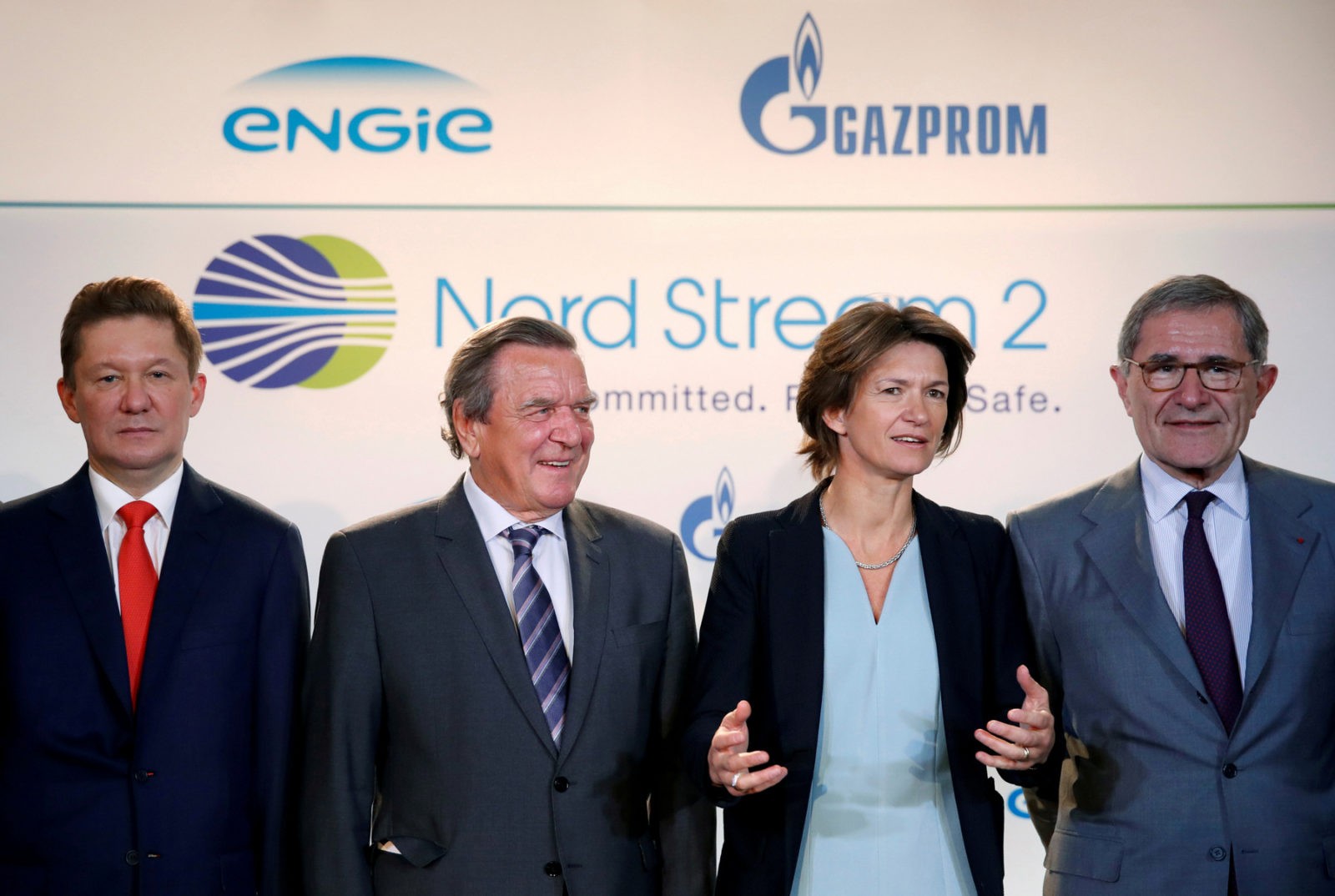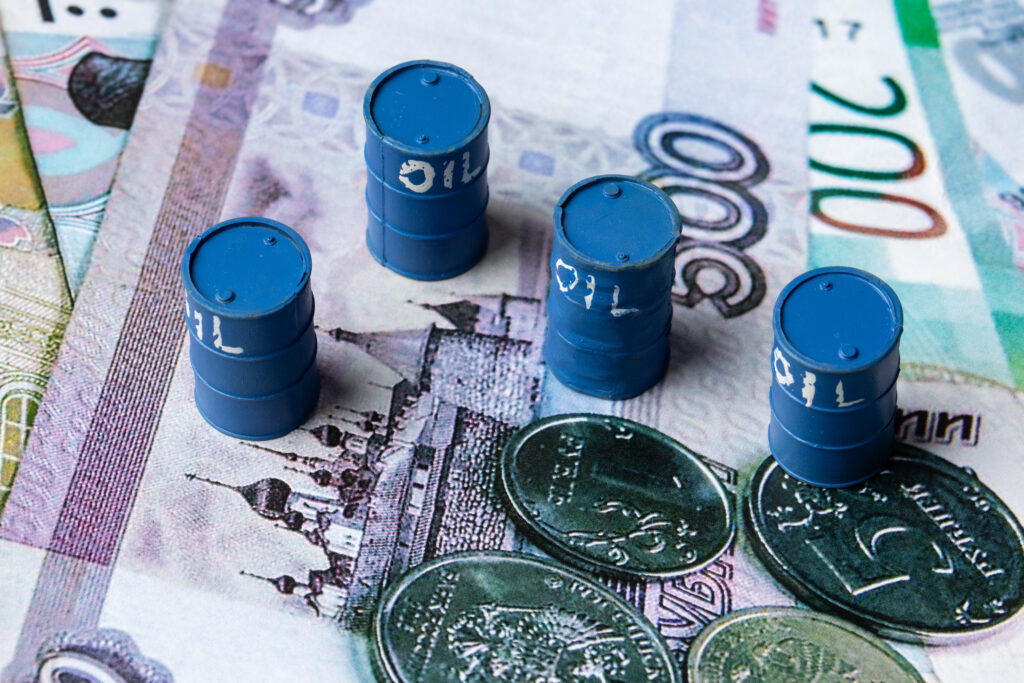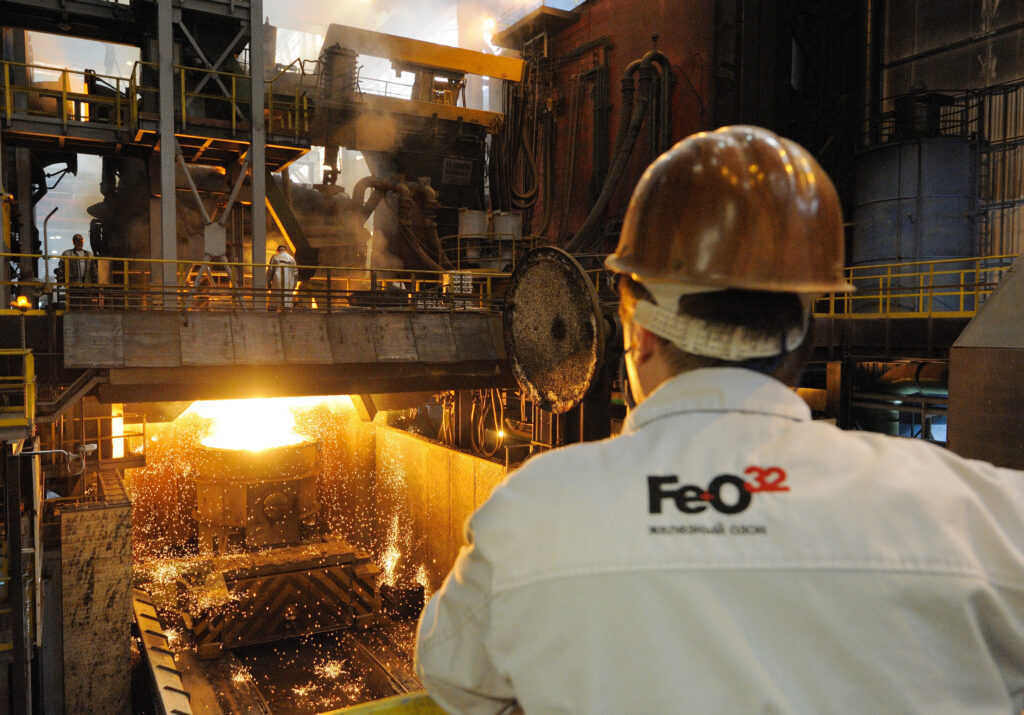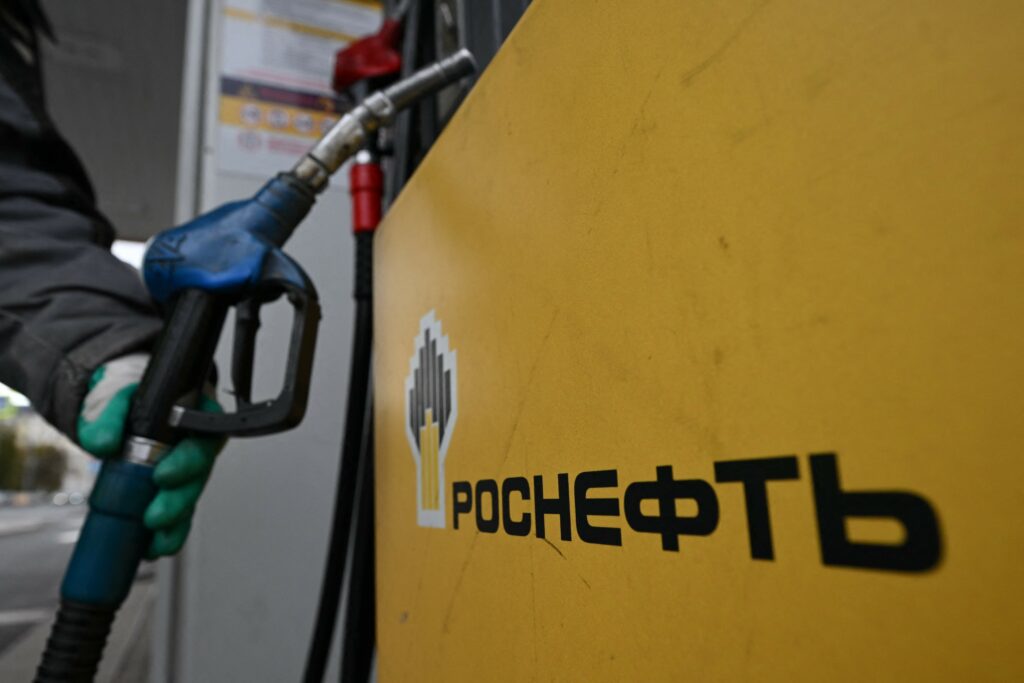When German Chancellor Angela Merkel met Russian President Vladimir Putin in late August, a key item on their agenda was the proposed construction of a new gas pipeline from Russia to Germany across the Baltic Sea. Both leaders reaffirmed their commitment to the project, known as Nord Stream 2. This was despite many articles in the international media urging Merkel to pull back. She has been criticised by members of the European Commission, Eastern EU member states, the US and even some conservative German politicians.
Nord Stream 2 may well be one of her least popular decisions. (Only her migration policy is noticeably more controversial.) Yet the project is going ahead. It has passed all administrative stages and the pipeline will likely be built. Why has it become a bone of contention? And what does this say about Russia-Germany-EU relations?
In 2017, Europe imported almost 70% of its oil. Of that, Russia supplied 30%, far ahead of other exporters. The second largest exporter, Norway, accounted for as little as 13% of the imported volume. In 2016−2017, Russia was also a leader in gas supplies, accounting for approximately 40% of imports. Norway is on a par with Russia: each supplied 37% of gas imports in 2017.
Supplies to Europe are a must for Russia. According to various estimates, oil and gas revenues account for 70% of its budget. Moreover, gas is the subject of regional geopolitics. It is possible to transport gas by sea. But it is easier for Russia to sell it to its neighbours. There is already a well-developed gas pipeline network dating back to the USSR. Unlike the oil market, which has a single global price, the gas market is divided into zones. It is more difficult to replace a partner without financial losses. Hence, the EU and Russia are bound together.
Liberal economic theories would suggest this interdependence should foster peaceful co-existence. There is a clear logic here: If country A needs goods from country B and vice versa, both parties are interested in supplies. That is, they need each other.
However, the EU-Russia case shows this relationship is more complicated. The latest research shows that the quality of interdependence defines relations. Relations are tense when interdependence concerns only one issue, like fossil fuels in this case. If the parties are not bound by multiple obligations, it is easier to break a deal. The countries are afraid that one of the parties will let the other down and relations will become asymmetrical. That is,. one party will be more dependent on the other. To avoid vulnerability, one country takes steps to reduce dependence. This tips the balance, giving a signal to the other party to act in the same manner. Such games undermine trust between partners, and such is the case with EU-Russia relations.
In 2006 and 2009, Russia cut off gas supplies to Europe via Ukraine. These actions triggered EU efforts to strengthen energy security. Those who called dependence on Russia dangerous were finally heard. A new EU energy strategy emerged, pushing energy market liberalisation. It pushed back against monopolies and called for the introduction of short term agreements. It encouraged the development of technologies for Liquefied Natural Gas (LNG) and new pipelines to diversify supplies.
After Crimea the risks increased and new measures were introduced. These include, for example, the 2030 Strategy and the establishment of the Energy Union. This will guarantee solidarity among countries in the case of supply disruption. But these are simply new pages of the same scenario: protection against potential risks. Russia is developing its own measures that mirror the EU’s strategy, in order not to fall into asymmetric dependence. These measures include state control of the energy sector; expulsion of foreign companies; long-term agreements; control over routes to Europe. There are also plans to diversify its markets, including the construction of a pipeline to China.
As we can see, the EU and Russia have developed opposite strategies. However, it seems the players are developing the Nord Stream 2 project outside the framework of this security dilemma. The idea is that the pipeline is to connect Germany and Russia directly. It will increase the total capacity to 110 billion cubic meters a year. This is not a purely economic deal, although it took Merkel a long time to admit this. It’s also an issue of energy security, governed by politics.
As the European Commission pointed out, the project does not follow the long-term strategy to create an Energy Union. It may be detrimental to price liberalisation and market diversification within the EU. As a player representing the interests of the entire EU, the European Commission warns that Nord Stream 2 will divide member states. Germany is constructing a new gas pipeline, while Poland refuses to renew its agreement with Gazprom in 2022. (Poland is still searching for other suppliers.) There is hardly any room for compromise.
Central and Eastern European countries believe Nord Stream 2 does not fit with their foreign policy interests. There are reasons for that. The capacity of the first gas Nord Stream pipeline will double. Both pipelines bypass these countries. That means financial losses, since it diminishes their role as transit countries. It also creates risks to energy security. The pipeline will supply huge volumes of gas to Europe bypassing CEE countries. So it becomes possible to cut them off without stopping supplies to Germany, making CEE more vulnerable. Moreover, since there is no single EU energy market, supply prices are set with each country individually. Having strengthened its position in north-western Europe, Gazprom can offer lower prices there. By doing so, it can shrug off competitors and increase prices in Eastern Europe.
The voices of CEE countries, especially Slovakia and Poland, are the loudest critics. But other countries are also raising concerns about the impact of Nord Stream 2 on security and the environment in Europe. Germany’s only allies are countries whose companies have also invested in the project, mainly Austria.
That being said, the only remaining obstacle is the lack of Danish approval. Once given, the pipeline will be launched by the end of 2019. Why is Germany playing this game? This is after all the Germany which pushed for sanctions against Russia. The same Germany which expelled Russian diplomats in solidarity with the UK. The same Germany often considered the locomotive of EU integration.
First of all, it is profitable for Germany. The German company Uniper is one of the investors. Gazprom not only offers cheap prices. It is also going to cover a significant chunk of construction costs. Some experts argue that Germany needs more energy resources. Especially when its nuclear plants are shut down and gas production decreases in the Netherlands. Alternatives such as LNG from the US will cost more. Besides, LNG requires more transport infrastructure. And with increasing supplies, the role of Germany as a transit country grows.
This is also a reliable solution for Germany. Dependence on Russian gas and exposure to disruption of supplies differs from country to country within the EU. Germany’s position is rather stable. For example, disruptions turned into a humanitarian crisis in Bulgaria in winter 2009. The country receives all its gas (used for heating) from Russia via Ukraine. Gas routes to Germany are more diversified. The share of Russian oil and gas in Germany is not 75% and 100% respectively as in Slovakia, Estonia or Finland, for example, but 20−25% and 50−75%, respectively. The level of market liberalisation, available stock and history of relations with Russia also make Germany’s position stronger. This can partially be explained by the more complex nature of trade between the two countries. Three-fourths of total EU imports from Russia is energy; as mentioned, the interdependence is based on one issue only. The situation between Russia and Germany looks different. Machinery is an important item in trade between the countries. Germany is an important export partner. Since both countries are bound by many commitments, Germany is not trapped by fear of the asymmetric dependence described above. Germany is not looking for escape routes. Thus, the common EU energy strategy is not very relevant for Germany. This creates a temptation to abandon general principles for the sake of national interests.
The position of Germany, which is trying to strike a balance between Russia and the EU, is detrimental to its reputation. Relations with fellow EU member countries are as important as Germany’s economic interests. Germany could avoid the accusations of its partners if it transferred the negotiation mandate for Nord Stream 2 to the European Commission, as requested. The project could be run by the EU.
But Germany did not take this step, probably out of fear of losing profits and sovereignty over this issue. From a tactical point of view, Germany’s behaviour is rational. But it creates a difficult situation within the EU, which is detrimental to strategic interests. Speaking of long-term relations and not a one-time deal, the profits and costs are not measured in money. Reputation and trust are at stake. It is not clear how to build a relationship with Germany when Angela Merkel appeals to solidarity on issues important to her, like migration, but shows none on issues important for Eastern Europe. This is a controversial stance at a time when the EU craves unity.










